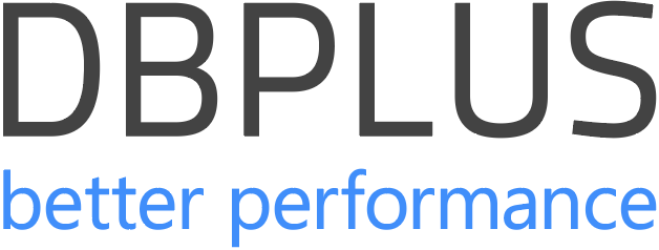20/02/2025
Key Metrics for Reliable Database Replication
Database replication sounds simple enough: take data from one place and make sure it appears somewhere else, quickly and correctly. But anyone who’s spent time monitoring and troubleshooting replication knows it’s anything but straightforward. Networks fail, logs get backed up, and suddenly your secondary database is minutes (or hour) behind.
That’s why replication metrics matter.
13/02/2025
ORA-00904: Invalid Identifier in Oracle Databases
When you’re working with Oracle databases, some errors pop up so regularly that DBAs almost recite them in their sleep. ORA-00904: invalid identifier is certainly one of those classic offenders. On the face of it, ORA-00904 indicates you’ve referenced a column or other identifier that Oracle can’t locate or doesn’t consider valid. Straightforward enough—maybe there’s a simple typo, or a missing column in your table. But there are subtler corners of Oracle that can trigger the same error even when you think you’ve done everything right.
06/02/2025
From .NET to Azure: How Did Microsoft Compete with Oracle Database Over the Years?
For a long time, talk of database supremacy circled around Oracle’s hold on mission-critical workloads. Then Microsoft stepped up with SQL Server, coaxing DBAs away from Unix systems by leaning heavily on a Windows ecosystem that many found simpler to manage. Fast-forward to the present, and the contest has expanded into cloud territory, culminating in an unexpected partnership that underscores just how practical both tech giants have become. How did Microsoft compete with Oracle Database throughout this journey?
30/01/2025
Achieve Database Optimization Without Abandoning Normalization
High concurrency, scattered queries, unpredictable data growth—the usual suspects. When everything’s slow and your tables are bursting, you face a tough choice: enforce strict normalization for pristine data integrity or optimize aggressively to wring out every last drop of performance. Overly normalized schemas may lead to a maze of joins and hamper speed under heavy loads. Performance-driven shortcuts—like denormalizing key data—can bloat storage and complicate updates. Balancing database optimization and normalization isn’t always straightforward, but it is possible.
23/01/2025
Database Performance Tuning – the Sensible Way: Collaborative Strategies, Clear Metrics, and Tested Changes
Databases are either the invisible workhorse that keeps everything running smoothly or the ticking time bomb that wakes you at 3 a.m. with catastrophic slowdowns. There’s rarely a middle ground. Performance tuning makes all the difference—especially when you combine actual metrics, meaningful collaboration, and a dash of common sense. A few checks here and there can save hours of panic later on, and nothing beats a stable, responsive system for making you look like the hero of the IT team.
Of course, it helps to have a reliable way to see what’s going on under the hood while performance tuning, keep everyone on the same page, and avoid applying fixes blindly. After all, a well-tuned database is happier, and so are the people who rely on it every day.
24/10/2024
On-site Database Events to Attend in 2025
From Wales to London, Orlando to Stockholm, and beyond, 2025 promises a smorgasbord of data-driven sagas across various locales. Here’s a peek at the not-to-miss database events set to sprinkle some intellectual stardust on your next year’s calendars.
08/02/2021
Manage your database performance and data accessibility today…alive tomorrow.
Webinar date: Wednesday 10th March, 11:00am CET Your business growth demands efficient IT services with upgrades and enhancements delivered on…
16/09/2020
Actinium Consulting GmbH and DBPLUS enter into partnership
Actinium Consulting GmbH specializes in business intelligence and ERP. The software developments by DBPLUS for database optimization and real-time data…
07/01/2020
dbi services with real-time replication using the DBPLUS Data Replicator
dbi services described our solution for real-time data replication on their blog. dbi services was founded in 2010 and is…
16/10/2019
Partner for Performance representing DBPLUS at the DOAG Conference and Exhibition 2019 in Nuremberg
Partner for Performance representing DBPLUS at the DOAG Conference and Exhibition 2019 in Nuremberg You wish to become more familiar…
20/06/2024
From Analysis to Action: Overcoming Execution Plan Changes
Execution plans choose the way in which SQL queries are executed by the database engine. As such, they are a difference between a smoothly running database and one that stumbles under load. Sometimes, an execution plan changes, for various reasons—often silently and without warning—and the far-reaching fallout can be huge.
The most immediate impact seen as the execution plan changes is a decline in query performance. A query that once ran smoothly in milliseconds might, due to an altered plan, start consuming seconds. This increase in query time can cascade into longer load times for applications, frustrated end-users, and severe financial repercussions in high-stakes environments such as financial trading platforms or real-time data services.
06/06/2024
The Most Important Database Performance Metrics
If no one sees the database issues, do they really happen? – Contrary to the popular philosophical dilemma, this question can be answered quite easily – Absolutely yes. Unseen or unmonitored problems in database systems do occur and can indeed cause significant disruptions. It doesn’t matter if they’re not immediately apparent. Without monitoring of the database performance metrics and proactive management, these underlying issues can compound, leading to decreased performance, potential data loss, and even system failures that by their nature demand urgent and often extensive interventions to rectify.
The cost of ignoring database performance metrics is just too great.
23/05/2024
The Story of Locks by Application Issues
On the 20th of April, query load times usually ranged from 12 to 15 seconds per snapshot, but there was a notable spike exceeding 2,000 seconds during certain periods. This anomaly suggested a deeper issue, prompting a detailed investigation. By examining the correlation between locks and application issues, executions, disk reads, and buffer writes, a significant overlap was found between increased query durations and intensified locking issues. Accessing the lock history tab provided detailed data on each lock event, including the time, duration, and specific database elements affected.
02/05/2024
How can you speed up database read queries
Before getting into the technicalities of speeding up your database read queries, the first step is always to have a clear understanding of what exactly you need. This might sound straightforward, but inefficient queries often begin with uncertainty about the data requirements. Knowing exactly what information is necessary for your application or analysis not only helps in crafting precise queries but also prevents the database from retrieving extraneous information, which can significantly slow down performance.
25/04/2024
Data Observability
Too often when looking at the data we see just numbers – columns and rows that might seem meaningful on the surface but lack depth without proper context. Data observability changes this perspective. This approach is about understanding what the numbers really tell us about the health, accuracy, and vitality of our data systems.
Data observability isn’t just one thing – it’s an ability, or rather a way of monitoring your data’s health, accuracy, and overall usefulness. It’s what equips data teams with the essential tools they need in order to make sure that the data that’s driving business decisions is not only there but also high-quality, well-structured, and up-to-date.
06/07/2018
DBPLUS partner webtelligence on SQLSaturday in Paris
On July 7, 2018, the sixth Microsoft Data User Community meeting in France will take place. Participants will meet in…
12/06/2018
webtelligence at SOUG Day in Baden, Switzerland
The meeting of the Swiss community of Oracle users will take place on June 14, 2018. Our partner webtelligence will…
15/05/2018
A new DBPLUS Client in Austria
In May 2018, webtelligence, a German business partner of DBPLUS, began implementing the DBPLUS Performance Monitor solution for MS SQL…
16/04/2018
Another success for DBPLUS in the German market
On April 12, 2018, we began implementing the DBPLUS Data Replicator solution for the customer in the financial sector in…
03/01/2018
DBPLUS at SQLSaturday #679 in Vienna
SQLSaturday is an all-day conference and training event which is taking place in 2018 for the fifth time in Austria….
07/04/2023
New version Performance Monitor (Release 2023.1)
On April 7, 2023, we released a new version of Performance Monitor for Oracle, Microsoft SQL Server, PostgreSQL and SAP…
10/10/2022
New version Performance Monitor (Release 2022.3)
On October 10, 2022, we published a new version of Performance Monitor for Oracle, Microsoft SQL Server, PostgreSQL and SAP…
10/07/2022
New version Performance Monitor (Release 2022.2)
On July 10, 2022, we published a new version of Performance Monitor for Oracle, Microsoft SQL Server, PostgreSQL and SAP…
10/04/2022
New version Performance Monitor (Release 2022.1)
On April 10, 2022, we released a new version of Performance Monitor for Oracle, Microsoft SQL Server and PostgreSQL databases….
30/12/2021
New version Performance Monitor (Release 2021.4)
On December 30, 2021, we released a new version of Performance Monitor for Oracle, Microsoft SQL Server and PostgreSQL databases….

























